
Carol and Friends
A Different Kind of Composer Study
Here we feature many significant composers, focusing on the music, the times, the economics, the significance, and the legacy. Rich in time lines, images, and performances, this series will give you plenty of material to engage your elementary and secondary school students with a meaningful introduction to music history and appreciation.
(free preview for each composer)
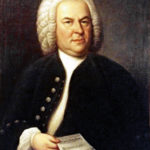 J.S. Bach. The undisputed master of the Baroque Era. As we consider Bach the man, we focus primarily on Bach the musician with many opportunities to hear his music and to become familiar with his style in all its variety, integrity, and beauty. Go to Bach Page.
J.S. Bach. The undisputed master of the Baroque Era. As we consider Bach the man, we focus primarily on Bach the musician with many opportunities to hear his music and to become familiar with his style in all its variety, integrity, and beauty. Go to Bach Page. Bartók devoted his musical life to the collection and cataloguing of folk music and incorporated those idioms into his compositions. He enters the Pantheon of great composers as both the most important national voice of Hungary and as a key innovator in both composition and aesthetics of the 20th century. Go to the Bartók page.
Bartók devoted his musical life to the collection and cataloguing of folk music and incorporated those idioms into his compositions. He enters the Pantheon of great composers as both the most important national voice of Hungary and as a key innovator in both composition and aesthetics of the 20th century. Go to the Bartók page. Beethoven celebrates his 250 birthday this month, so we think it’s appropriate to celebrate it with him. And, in a series about famous composers, you need to consider perhaps the most famous composer early on.
So here is our rather extensive page on Beethoven, his life, his music, and his legacy. Go to the Beethoven page.
Beethoven celebrates his 250 birthday this month, so we think it’s appropriate to celebrate it with him. And, in a series about famous composers, you need to consider perhaps the most famous composer early on.
So here is our rather extensive page on Beethoven, his life, his music, and his legacy. Go to the Beethoven page.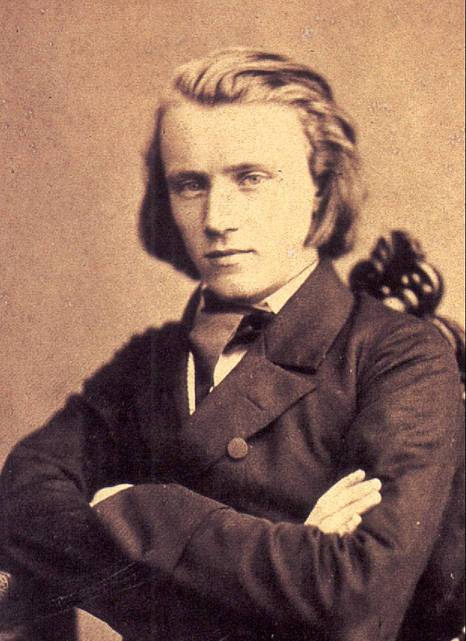 Musicians often refer to Bach, Beethoven, and Brahms as the “three Bs.” Bach and Beethoven have clearly earned their reputation as composers of great genius, but what places Brahms alongside them in the Pantheon of composers? Go to the Brahms page.
Musicians often refer to Bach, Beethoven, and Brahms as the “three Bs.” Bach and Beethoven have clearly earned their reputation as composers of great genius, but what places Brahms alongside them in the Pantheon of composers? Go to the Brahms page.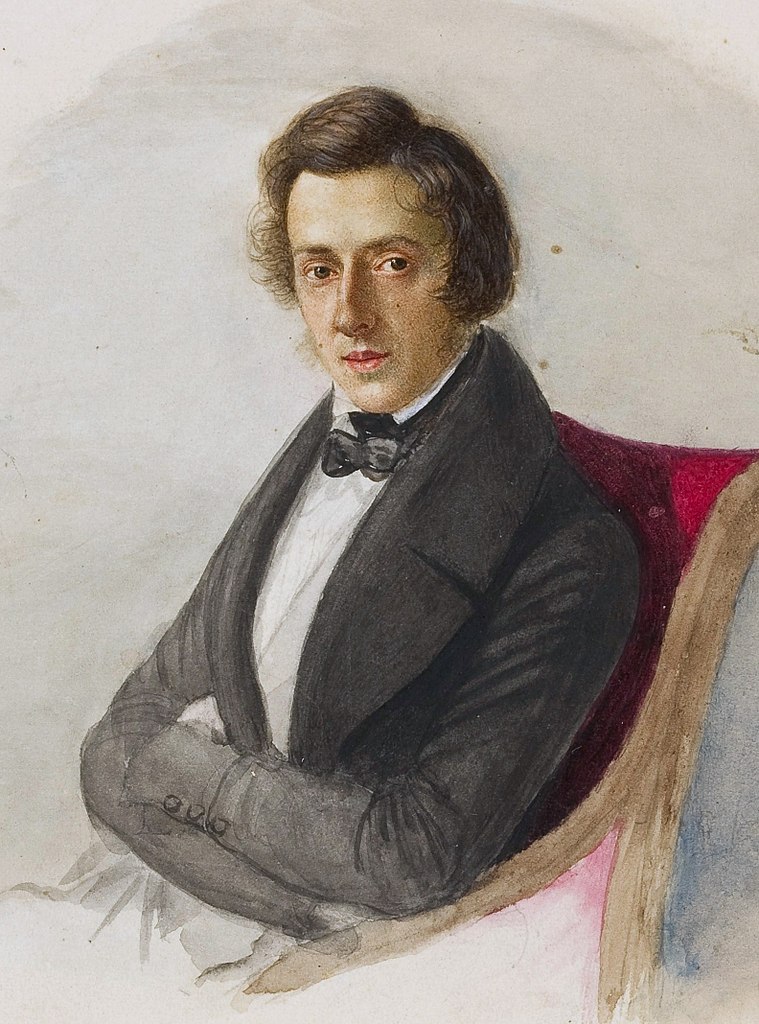 Chopin has a commanding presence among lovers of music—particularly pianists. Robert Schumann famously published the oft-quoted words “Hats off, gentlemen, a genius!” in a review of the young Chopin’s second published work (Opus 2). Chopin was devoted to a still new form of music we call “character pieces,” relatively short works that express a mood or other non-musical idea. Go to the Chopin page.
Chopin has a commanding presence among lovers of music—particularly pianists. Robert Schumann famously published the oft-quoted words “Hats off, gentlemen, a genius!” in a review of the young Chopin’s second published work (Opus 2). Chopin was devoted to a still new form of music we call “character pieces,” relatively short works that express a mood or other non-musical idea. Go to the Chopin page.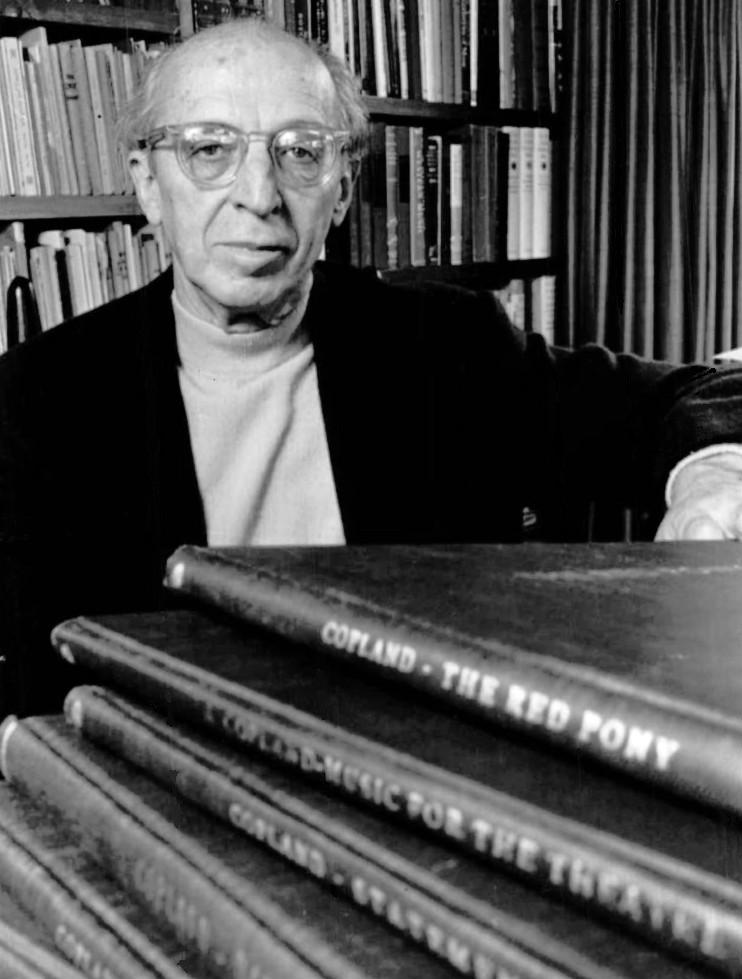 Aaron Copland (1900-1990) stands as one of the iconic American composers of the 20th century. His Fanfare for the Common Man and Appalachian Spring, among others, have become mainstays of the classical repertoire. How did Copland create this signature American sound? Go to the Copland page.
Aaron Copland (1900-1990) stands as one of the iconic American composers of the 20th century. His Fanfare for the Common Man and Appalachian Spring, among others, have become mainstays of the classical repertoire. How did Copland create this signature American sound? Go to the Copland page.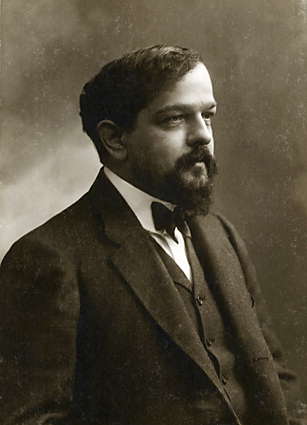 The music of French composer Claude Debussy (1862-1918) coincided with the Impressionist movement in art. Certain similarities between that art and Debussy’s style resulted in his music being dubbed “impressionist.” Although Debussy rejected that label, he is today regarded as the foremost Impressionist composer. Go to the Debussy page.
The music of French composer Claude Debussy (1862-1918) coincided with the Impressionist movement in art. Certain similarities between that art and Debussy’s style resulted in his music being dubbed “impressionist.” Although Debussy rejected that label, he is today regarded as the foremost Impressionist composer. Go to the Debussy page.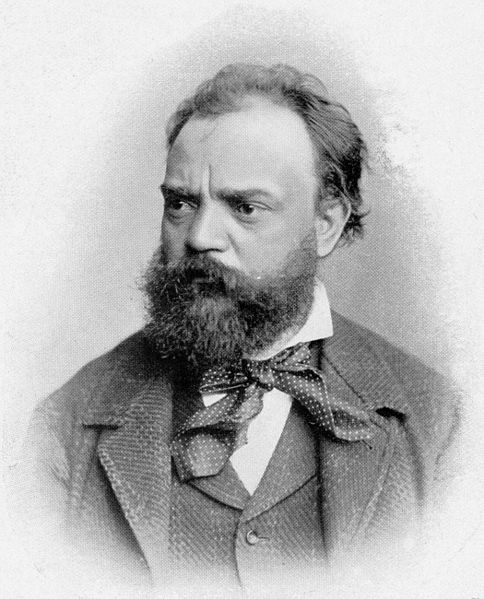 We can view much of Dvorak’s musical career through the lens of nationalism, particularly as he chose to remain in his homeland and cultivate Czech literature, tradition, and legends in his music while achieving international fame. Go to the Dvořák page.
We can view much of Dvorak’s musical career through the lens of nationalism, particularly as he chose to remain in his homeland and cultivate Czech literature, tradition, and legends in his music while achieving international fame. Go to the Dvořák page.
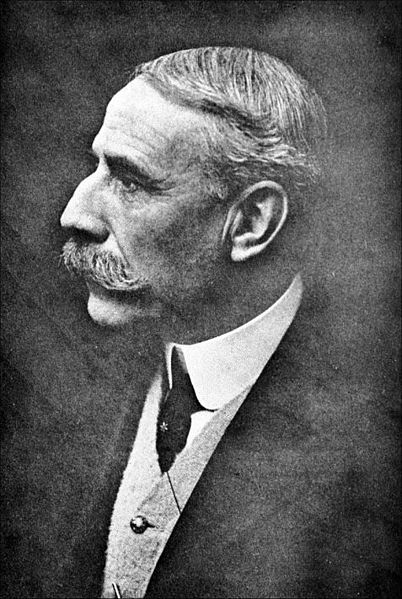 Sir Edward Elgar represents the peak of British music in the late Romantic era. His landmark works Enigma Variations and The Dream of Gerontius earn him a position among the great composers of that fruitful era. His Pomp and Circumstance march exemplifies British culture and processional grandeur. Go to the Elgar page.
Sir Edward Elgar represents the peak of British music in the late Romantic era. His landmark works Enigma Variations and The Dream of Gerontius earn him a position among the great composers of that fruitful era. His Pomp and Circumstance march exemplifies British culture and processional grandeur. Go to the Elgar page.
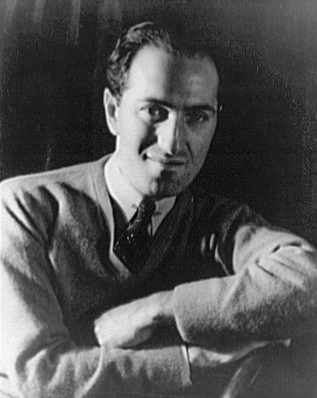 The music of George Gershwin melds classical and popular styles with the use of jazz idioms. The music has been aptly described as the embodiment of musical Americana. Go to the Gershwin page.
The music of George Gershwin melds classical and popular styles with the use of jazz idioms. The music has been aptly described as the embodiment of musical Americana. Go to the Gershwin page.
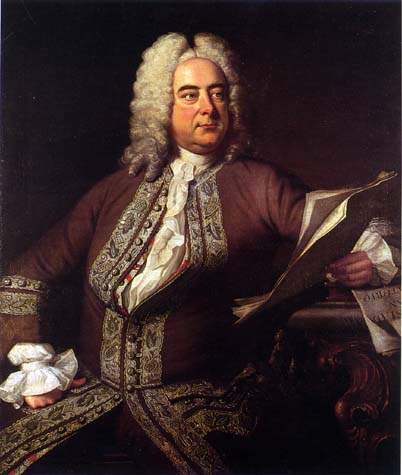 Handel is universally recognized as one of the great composers of any era, and certainly of the Baroque era. The enormous popularity of his oratorio Messiah has tended to obscure most of his other important and beautiful works. He composed vocal and instrumental works of every popular genre in his day, but his primary interest lay in works for the theater. Go to the Handel page.
Handel is universally recognized as one of the great composers of any era, and certainly of the Baroque era. The enormous popularity of his oratorio Messiah has tended to obscure most of his other important and beautiful works. He composed vocal and instrumental works of every popular genre in his day, but his primary interest lay in works for the theater. Go to the Handel page.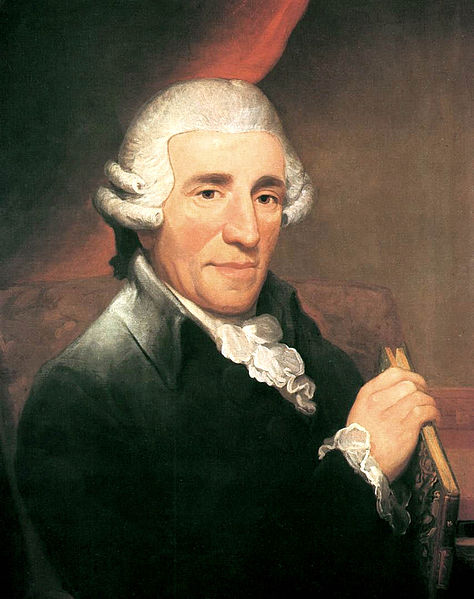 Joseph Haydn became the most famous composer of his day, commanding enormous respect in his native Austria and across Europe. He was a mentor to other great composers of the Classical Era, including Mozart and Beethoven. Go to the Haydn page.
Joseph Haydn became the most famous composer of his day, commanding enormous respect in his native Austria and across Europe. He was a mentor to other great composers of the Classical Era, including Mozart and Beethoven. Go to the Haydn page.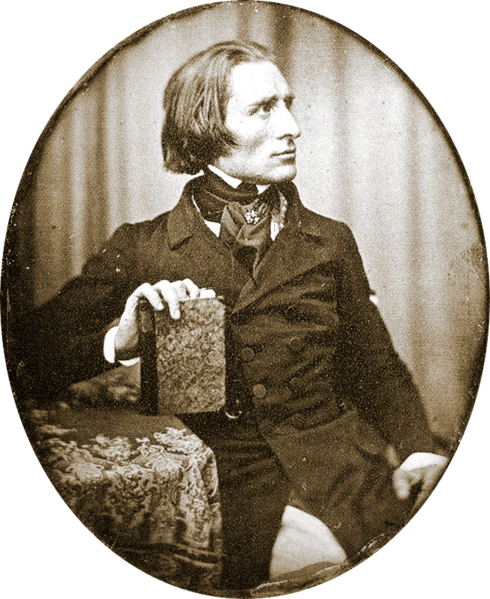 The name of Liszt resounded across Europe in the 19th century. A celebrity on the level of a Frank Sinatra or Elvis, his piano playing stunned everyone who heard it. Women really did throw diamond necklaces at him and faint in the aisles. Go to the Liszt page.
The name of Liszt resounded across Europe in the 19th century. A celebrity on the level of a Frank Sinatra or Elvis, his piano playing stunned everyone who heard it. Women really did throw diamond necklaces at him and faint in the aisles. Go to the Liszt page.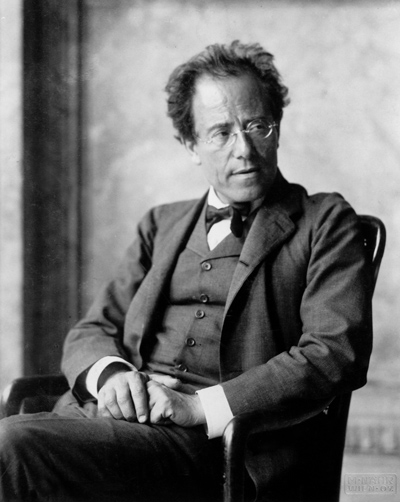 One of the most renown conductors during his lifetime, Mahler’s commanding position today as a symphonic composer came about only a half century after his death. Mahler’s music represents the culmination of the Austro-German late-Romantic orchestral tradition. Go to the Mahler page.
One of the most renown conductors during his lifetime, Mahler’s commanding position today as a symphonic composer came about only a half century after his death. Mahler’s music represents the culmination of the Austro-German late-Romantic orchestral tradition. Go to the Mahler page.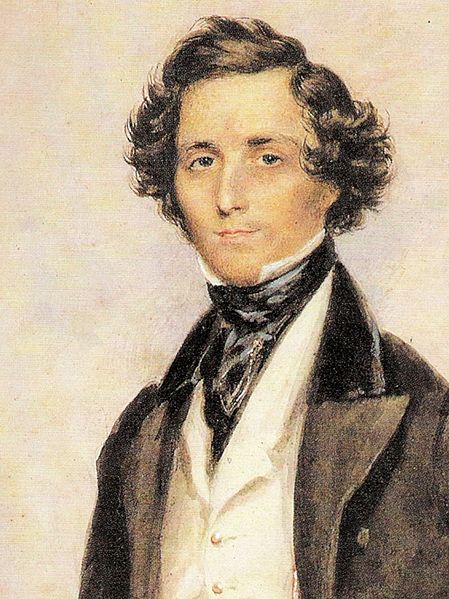 Although Mendelssohn worked in the Romantic era, he was essentially a Classicist who drew his inspiration from composers like Mozart and Haydn and from earlier works of Bach and Handel. At the age of 20, Mendelssohn conducted first performance of Bach’s St. Matthew Passion since Bach’s death 70 years earlier. That performance is credited with sparking a Bach revival. Go to the Mendelssohn page.
Although Mendelssohn worked in the Romantic era, he was essentially a Classicist who drew his inspiration from composers like Mozart and Haydn and from earlier works of Bach and Handel. At the age of 20, Mendelssohn conducted first performance of Bach’s St. Matthew Passion since Bach’s death 70 years earlier. That performance is credited with sparking a Bach revival. Go to the Mendelssohn page.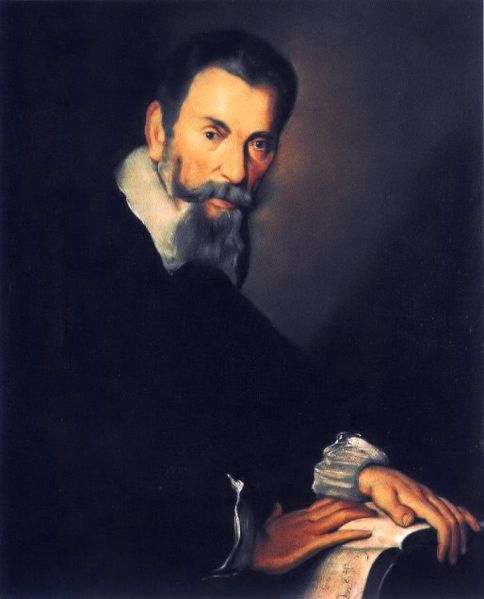 Few composers in history can be viewed as leading figures in two eras! Monteverdi established his career as a master of Renaissance vocal style and then moved into the new style that marked the beginning of the Baroque era. Thus, Monteverdi has been appraised rightfully as one of the most powerful figures in Western music history. Go to the Monteverdi page.
Few composers in history can be viewed as leading figures in two eras! Monteverdi established his career as a master of Renaissance vocal style and then moved into the new style that marked the beginning of the Baroque era. Thus, Monteverdi has been appraised rightfully as one of the most powerful figures in Western music history. Go to the Monteverdi page.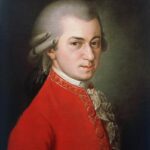 Why does Mozart’s music continue to be so highly valued? For that matter, how did we come to a place where we have studies claiming kids will be smarter if they listen to Mozart? Mozart undoubtedly possessed an extraordinary gift for playing and composing music. That gift was nourished zealously by his father, Leopold, a renowned pedagogue of the violin who paraded his child prodigy before royalty across Europe and immersed him in the highest musical circles. Go to the Mozart page.
Why does Mozart’s music continue to be so highly valued? For that matter, how did we come to a place where we have studies claiming kids will be smarter if they listen to Mozart? Mozart undoubtedly possessed an extraordinary gift for playing and composing music. That gift was nourished zealously by his father, Leopold, a renowned pedagogue of the violin who paraded his child prodigy before royalty across Europe and immersed him in the highest musical circles. Go to the Mozart page.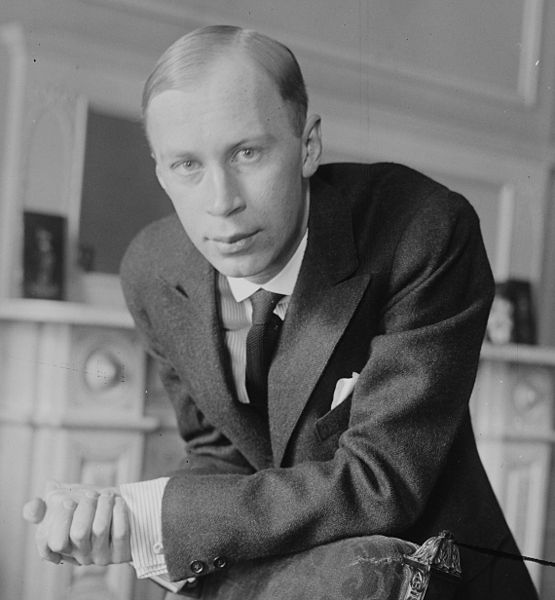 One of the most original and distinctive voices of the early 20th century, Prokofiev combined classicism and modernism, lyrical melodies and rhythmic energy, poignancy and ironic humor. Go to the Prokofiev page.
One of the most original and distinctive voices of the early 20th century, Prokofiev combined classicism and modernism, lyrical melodies and rhythmic energy, poignancy and ironic humor. Go to the Prokofiev page.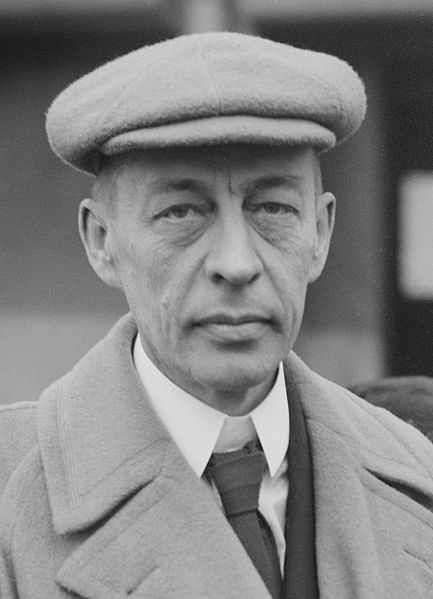 Certain composers may be honored for their technical mastery, their innovations, or their influence on history. Rachmaninov achieved prominence in all three, making his mark as a composer, pianist, and conductor. But he earns this early spot in our series because he is beloved by so many people unto today. Go to the Rachmaninov page.
Certain composers may be honored for their technical mastery, their innovations, or their influence on history. Rachmaninov achieved prominence in all three, making his mark as a composer, pianist, and conductor. But he earns this early spot in our series because he is beloved by so many people unto today. Go to the Rachmaninov page.
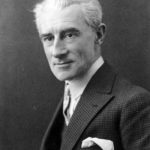 Ravel earns an early entry in our Composer of the Month series as an important innovator in compositions for piano and as an exquisite orchestrator. He helped to establish a new and modern musical vocabulary in opposition to 19th-century Romanticism while maintaining a commitment to classical forms and vivid melodies. And his music often achieves a rare charm with subjects drawn from fairy tales, literature, and depictions of nature. Go to the Ravel page.
Ravel earns an early entry in our Composer of the Month series as an important innovator in compositions for piano and as an exquisite orchestrator. He helped to establish a new and modern musical vocabulary in opposition to 19th-century Romanticism while maintaining a commitment to classical forms and vivid melodies. And his music often achieves a rare charm with subjects drawn from fairy tales, literature, and depictions of nature. Go to the Ravel page.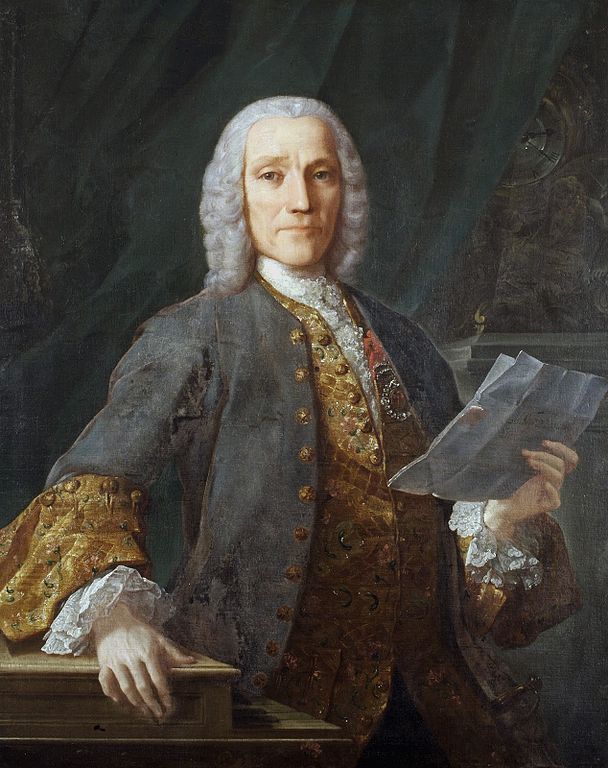 Domenico Scarlatti, the son of Italian composer Alessandro Scarlatti, holds a special place in the development of keyboard music. He studied the prevailing techniques of composition for instrumental ensembles and Italian opera, but in mid-career he moved to Portugal. There, influenced by musical styles of the Iberian Peninsula and his duties as a keyboard instructor, he produced hundreds of short keyboard sonatas that are prized for their charm, elegance, and originality. Go to the Scarlatti page.
Domenico Scarlatti, the son of Italian composer Alessandro Scarlatti, holds a special place in the development of keyboard music. He studied the prevailing techniques of composition for instrumental ensembles and Italian opera, but in mid-career he moved to Portugal. There, influenced by musical styles of the Iberian Peninsula and his duties as a keyboard instructor, he produced hundreds of short keyboard sonatas that are prized for their charm, elegance, and originality. Go to the Scarlatti page.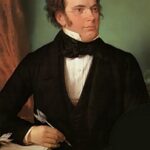 The Age of Romanticism, which began primarily in literature, replaced the more orderly artistic expressions of 18th-century Classicism. Schubert ushered in the era with masterworks in many genres, but especially songs (Lieder). Composers of songs found a steady supply of material from the marvelous (and quite popular) Romantic poets of the time (Goethe, Schiller, Heine, Müller, Rückert). Schubert wrote more than 600 songs. Go to the Schubert page.
The Age of Romanticism, which began primarily in literature, replaced the more orderly artistic expressions of 18th-century Classicism. Schubert ushered in the era with masterworks in many genres, but especially songs (Lieder). Composers of songs found a steady supply of material from the marvelous (and quite popular) Romantic poets of the time (Goethe, Schiller, Heine, Müller, Rückert). Schubert wrote more than 600 songs. Go to the Schubert page.
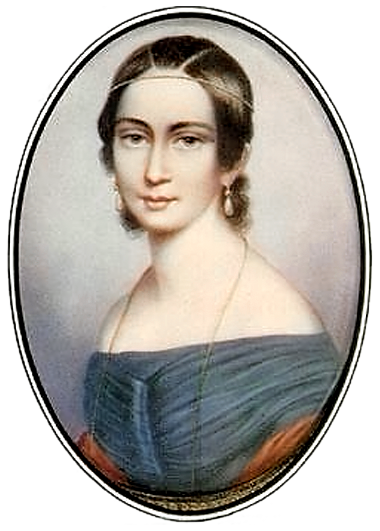 Perhaps the most renown pianist of her time, Clara Wieck married the composer Robert Schumann. She too was a fine composer, but compositions by women at that time received little attention outside of domestic circles. Go to the Clara Schumann page.
Perhaps the most renown pianist of her time, Clara Wieck married the composer Robert Schumann. She too was a fine composer, but compositions by women at that time received little attention outside of domestic circles. Go to the Clara Schumann page.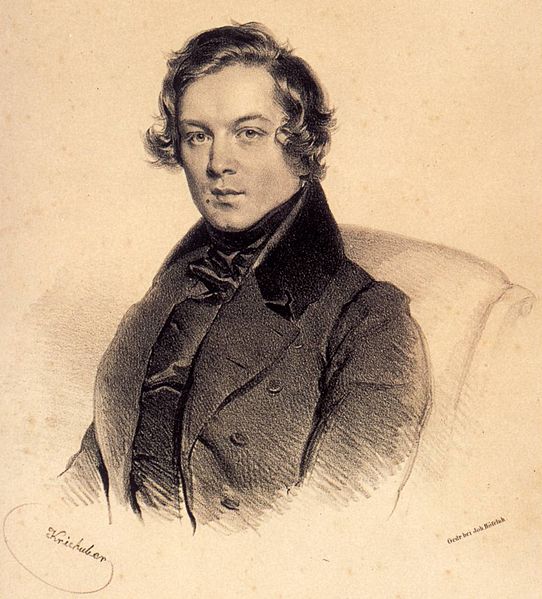 Robert Schumann represents the spirit of the Romantic Era as well as any composer we could feature. He immersed himself in the newest literature of his era and produced music of great lyricism and passion inspired by literature. He followed the aesthetic and philosophical trends of his day and was an important innovator in musical form, especially in his songs and works for piano. Go to the Schumann page.
Robert Schumann represents the spirit of the Romantic Era as well as any composer we could feature. He immersed himself in the newest literature of his era and produced music of great lyricism and passion inspired by literature. He followed the aesthetic and philosophical trends of his day and was an important innovator in musical form, especially in his songs and works for piano. Go to the Schumann page.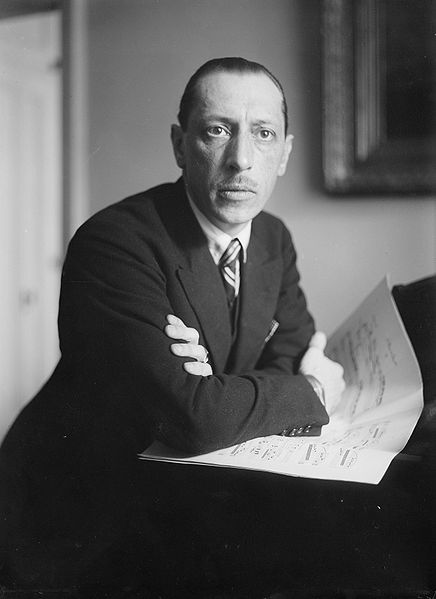 One of the most influential composers of the 20th century, the Russian Igor Stravinsky ushered in the modern era with his landmark ballet score The Rite of Spring (1912), and continued to pioneer new musical styles throughout his long life. Go to the Stravinsky page.
One of the most influential composers of the 20th century, the Russian Igor Stravinsky ushered in the modern era with his landmark ballet score The Rite of Spring (1912), and continued to pioneer new musical styles throughout his long life. Go to the Stravinsky page.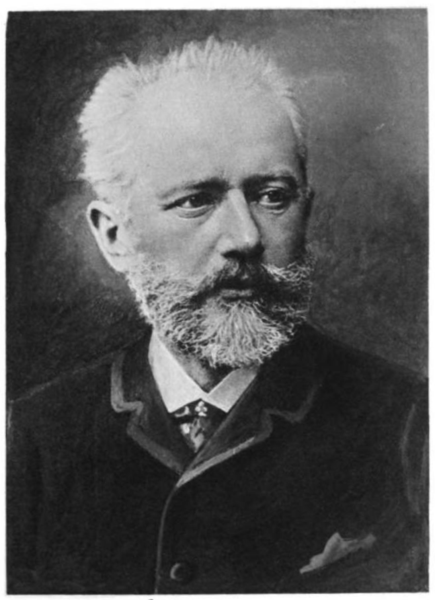 Although an acknowledge master of song and opera, Tchaikovsky’s heart belonged to the orchestra. He crafted a lush signature sound apparent in all of his orchestral compositions—symphonies, concertos, ballets, as well as the orchestral passages in his operas. His orchestration—choice and use of instruments—was sophisticated, filled with color, and yet framed by the sweeping sound of strings. Go to the Tchaikovsky page.
Although an acknowledge master of song and opera, Tchaikovsky’s heart belonged to the orchestra. He crafted a lush signature sound apparent in all of his orchestral compositions—symphonies, concertos, ballets, as well as the orchestral passages in his operas. His orchestration—choice and use of instruments—was sophisticated, filled with color, and yet framed by the sweeping sound of strings. Go to the Tchaikovsky page.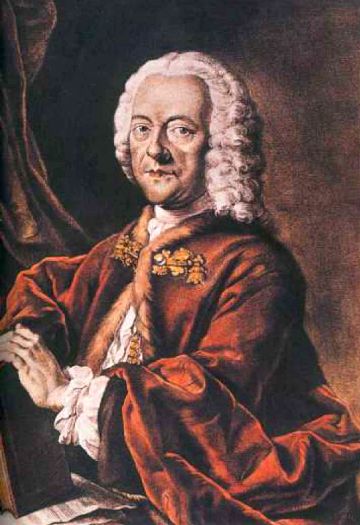 The prolific and multi-faceted composer Georg Philpp Telemann was the most highly respected German composer of his day. Although his reputation waned in the shadow of his contemporaries Bach and Handel, his music has enjoyed a revival and prompted a reassessment of his importance in music history. Go to the Telemann page.
The prolific and multi-faceted composer Georg Philpp Telemann was the most highly respected German composer of his day. Although his reputation waned in the shadow of his contemporaries Bach and Handel, his music has enjoyed a revival and prompted a reassessment of his importance in music history. Go to the Telemann page.